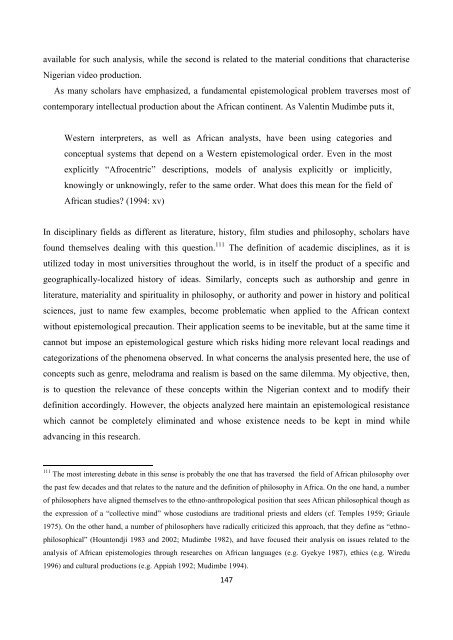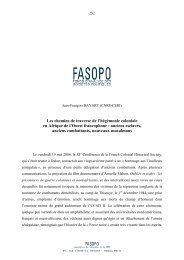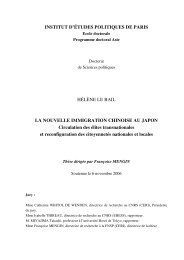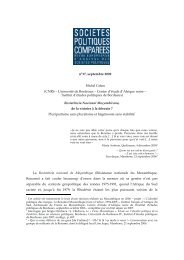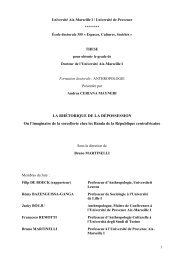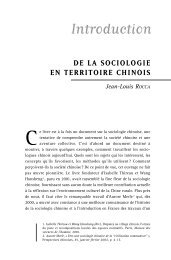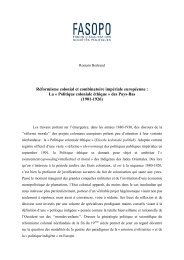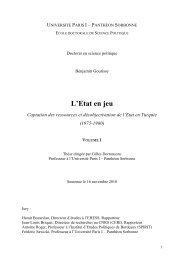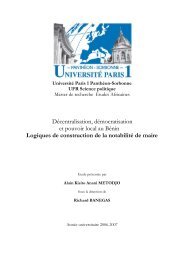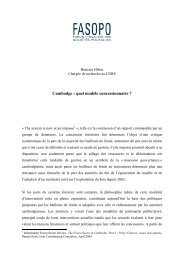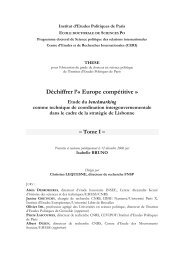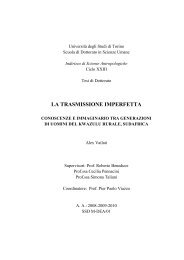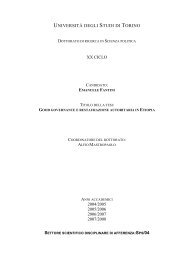Create successful ePaper yourself
Turn your PDF publications into a flip-book with our unique Google optimized e-Paper software.
available for such analysis, while the second is related to the material conditions that characteriseNigerian video production.As many scholars have emphasized, a fundamental epistemological problem traverses most ofcontemporary intellectual production about the African continent. As Valentin Mudimbe puts it,Western interpreters, as well as African analysts, have been using categories andconceptual systems that depend on a Western epistemological order. Even in the mostexplicitly “Afrocentric” descriptions, models of analysis explicitly or implicitly,knowingly or unknowingly, refer to the same order. What does this mean for the field ofAfrican studies? (1994: xv)In disciplinary fields as different as literature, history, film studies and philosophy, scholars havefound themselves dealing with this question. 111 The definition of academic disciplines, as it isutilized today in most universities throughout the world, is in itself the product of a specific andgeographically-localized history of ideas. Similarly, concepts such as authorship and genre inliterature, materiality and spirituality in philosophy, or authority and power in history and politicalsciences, just to name few examples, become problematic when applied to the African contextwithout epistemological precaution. Their application seems to be inevitable, but at the same time itcannot but impose an epistemological gesture which risks hiding more relevant local readings andcategorizations of the phenomena observed. In what concerns the analysis presented here, the use ofconcepts such as genre, melodrama and realism is based on the same dilemma. My objective, then,is to question the relevance of these concepts within the Nigerian context and to modify theirdefinition accordingly. However, the objects analyzed here maintain an epistemological resistancewhich cannot be completely eliminated and whose existence needs to be kept in mind whileadvancing in this research.111 The most interesting debate in this sense is probably the one that has traversed the field of African philosophy overthe past few decades and that relates to the nature and the definition of philosophy in Africa. On the one hand, a numberof philosophers have aligned themselves to the ethno-anthropological position that sees African philosophical though asthe expression of a “collective mind” whose custodians are traditional priests and elders (cf. Temples 1959; Griaule1975). On the other hand, a number of philosophers have radically criticized this approach, that they define as “ethnophilosophical”(Hountondji 1983 and 2002; Mudimbe 1982), and have focused their analysis on issues related to theanalysis of African epistemologies through researches on African languages (e.g. Gyekye 1987), ethics (e.g. Wiredu1996) and cultural productions (e.g. Appiah 1992; Mudimbe 1994).147


